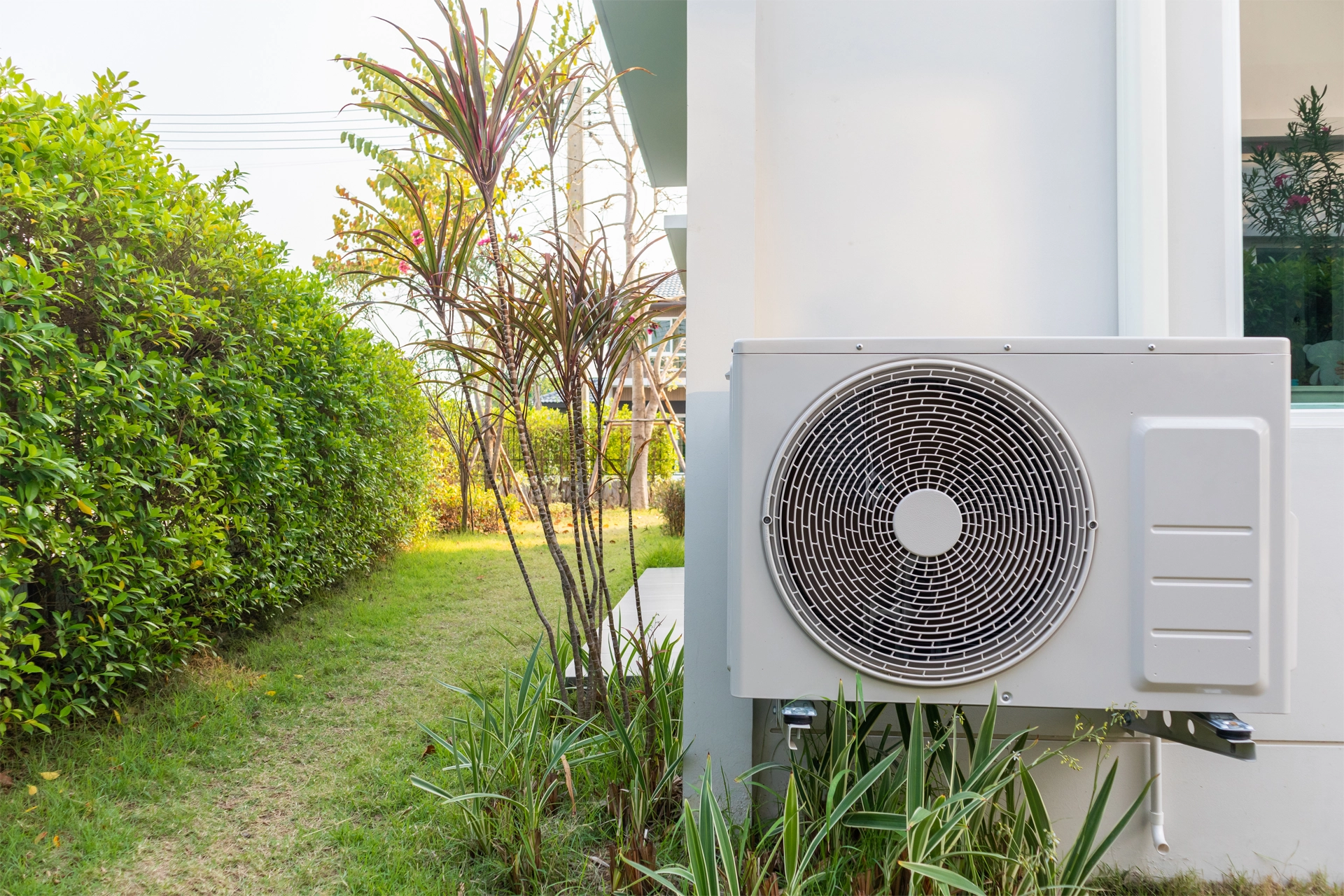
Many homeowners across the UK are searching for ways to heat their homes more efficiently. Heat pumps, especially air source systems, have grown in popularity due to their ability to extract heat from the outside air, even during colder months. In this blog, we explore how efficient these systems really are, how they work, their benefits, and whether they are a good fit for your property.
These renewable heating systems transfer heat from the outside air into your home. They work much like a fridge in reverse. While a fridge extracts heat from the inside and releases it outside, an air source heat pump pulls heat from the outside air and releases it inside your home to warm radiators, underfloor heating systems, and hot water.
Air source heat pumps consist of two main components: an outdoor unit and an indoor distribution system. The outdoor unit contains a fan, evaporator coil, and compressor. It draws in air and extracts the heat energy, which is then transferred indoors through the refrigerant cycle. Inside your home, this heat is distributed through existing radiators or underfloor heating and can also be used for hot water.
These systems are also considered one of the easiest renewable technologies to install in UK homes, as they do not require underground pipes or large storage systems. Once installed, they work automatically, providing continuous heating and hot water whenever needed.
Air heat pump systems absorb heat from the air into a refrigerant fluid. This fluid passes through a heat exchanger into the pump, where its temperature is raised using a compressor. The heated fluid then transfers its energy to your home’s heating and hot water systems. These systems remain efficient even in temperatures as low as -15°C, making them ideal for UK homes.
Because they use electricity to power the compressor and fans, heat pumps consume some energy but generate significantly more in usable heat output. This makes them much more efficient than direct electric heating, which converts energy into heat at a 1:1 ratio. Unlike gas or oil systems that burn fuel, heat pumps use the natural ambient air as their primary energy source.
Air source heat pumps are highly efficient. For every unit of electricity used to run the system, up to three units of heat can be produced. This measurement is known as the Coefficient of Performance (COP). A COP of 3 means the system is 300% efficient.
In comparison, traditional gas or oil boilers typically offer efficiencies between 85% and 95%. This means that heat pumps can be up to three times more efficient than older boiler systems, especially when paired with underfloor heating or larger radiators designed for lower flow temperatures.
Furthermore, while gas boilers burn fossil fuels and release carbon emissions, air source heat pumps use ambient heat from the environment, helping homeowners reduce their environmental impact and reliance on non-renewable resources.
Installing a heat pump offers several clear advantages:
As fuel prices continue to rise, choosing a heat pump can protect homeowners from future energy price increases, providing greater financial stability over time.
Heat pump systems work best in well-insulated homes. Ensuring your property has effective loft insulation or cavity wall insulation will help you retain heat and reduce energy waste.
If you’re unsure whether your home is suitable, Green Homes Group can arrange a property assessment to advise whether a heat pump system is the right option.
A common concern for homeowners is whether air source heat pumps can supply enough heat in larger homes. While heat pumps work well in most UK homes, the size of the property, existing heating system, and insulation levels all affect performance. An assessment will determine the optimal solution for your property.
While installation costs can be significant, grants such as those provided under the Energy Company Obligation (ECO) scheme help to make heat pumps more accessible. Many homeowners qualify for partial or full funding to support installation.
Visit our Air Source Heat Pump Grant Eligibility page to learn more or contact our team for guidance. Our experts will explain the options available and handle the application process on your behalf.
Once installed, air source heat pumps are relatively inexpensive to run. Most systems require annual servicing to ensure optimal performance, much like a traditional boiler service. Regular maintenance helps preserve efficiency and extends the system’s lifespan. Aside from servicing, running costs depend on your electricity tariff and overall heat demand. Generally, well-maintained systems experience very few problems over their operational life.
Green Homes Group helps homeowners across the UK access government-backed grants for renewable energy improvements. Our team supports you from the initial assessment through to installation and ongoing care.
We also provide:
Yes. Air heat pumps operate efficiently even when external temperatures fall to -15°C.
A well-maintained system can last between 15 and 20 years.
Heat pumps work best with underfloor heating or large radiators. However, existing systems can still be used in many cases.
Modern systems are designed to operate quietly, similar to air conditioning units.
Typically, no. Most installations fall under permitted development rights, although local regulations should always be checked.
Air source heat pumps are a highly efficient, renewable heating solution for UK homeowners. They offer a clear path to reducing energy costs and lowering your environmental impact.
Contact Green Homes Group today to learn if your home qualifies for grant-funded installation. Visit our About Us page for more information about our work.